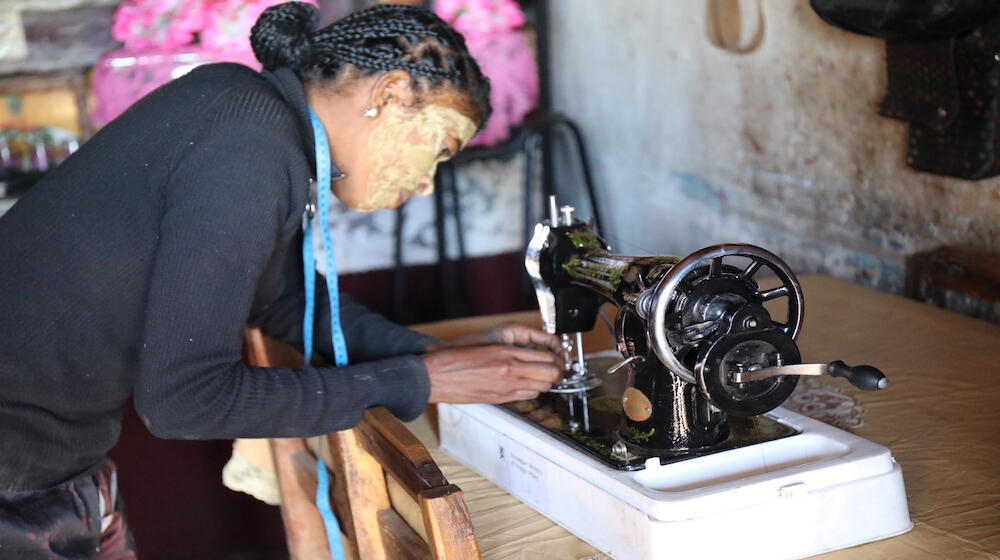Lilly invites us into her modest one-room apartment. At 38, she is a mother of three, aged 22, 18 and 15. Abandoned by her husband for the past 3 years, she has been making a living from small jobs ranging from selling second-hand clothes to sewing and mending clothes in the past six months following a training she benefitted from in Tuléar in March 2021. According to her, there has been a clear improvement in her living conditions since she started this activity.
At first, she was a housewife. There were times she and her children would go for an entire day with nothing to eat. The small family of four would wait on the first born to bring home some money from the city so they could buy water or food.
In the community, Lilly heard in discussions with neighbours about the existence of a Listening and Legal Counselling Centre (CECJ) that could provide solutions for women with problems. She did not hesitate to reach out to the Centre and met Ms Miora, one of the social workers at the Centre.
The psychosocial support given by the Centre's social workers, encouraging her to take charge of her life, to work and to overcome life’s challenges for her children's future has enabled her to approach life from a different perspective and to become a responsible, strong and fulfilled woman. She was selected to undergo a training in tailoring/sewing, which was organized by the Centre in Tuléar.
After the training, Lilly started sewing bags, purses and washable masks, which has enabled her to save money and better support herself and her children. While the impact of COVID-19 has reduced significantly, the raw materials for the bags are still not available in her district. Although demand is high, she has started mending and re-cutting clothes and has again started her own business of selling second-hand clothes, as people are no longer interested in custom-made clothes, which are expensive given the drought situation and lack of employment in the area. Although her income has decreased, it still allows her to have her daily subsistence, notably food and purchase of water cans (500 Ar per 20-litre can), which she prioritises for hygiene and cooking, and for her children's schooling. When asked to compare her current life as a working woman and her life as a housewife, Lilly answers without hesitation and with a broad smile: "Oh, I very much prefer my current life!
Oh, I very much prefer my current life!
Lilly hopes one day she’ll be able to open her own clothing shop and intends to push her children to finish their studies. At the same time, she encourages women in her district to find something doing in order to become financially independent and no longer depend on men for everything. "If they ever were victims of violence, I’ll accompany them to the CECJ, so they can get to know about their rights and find solutions to their problems," she confides.


